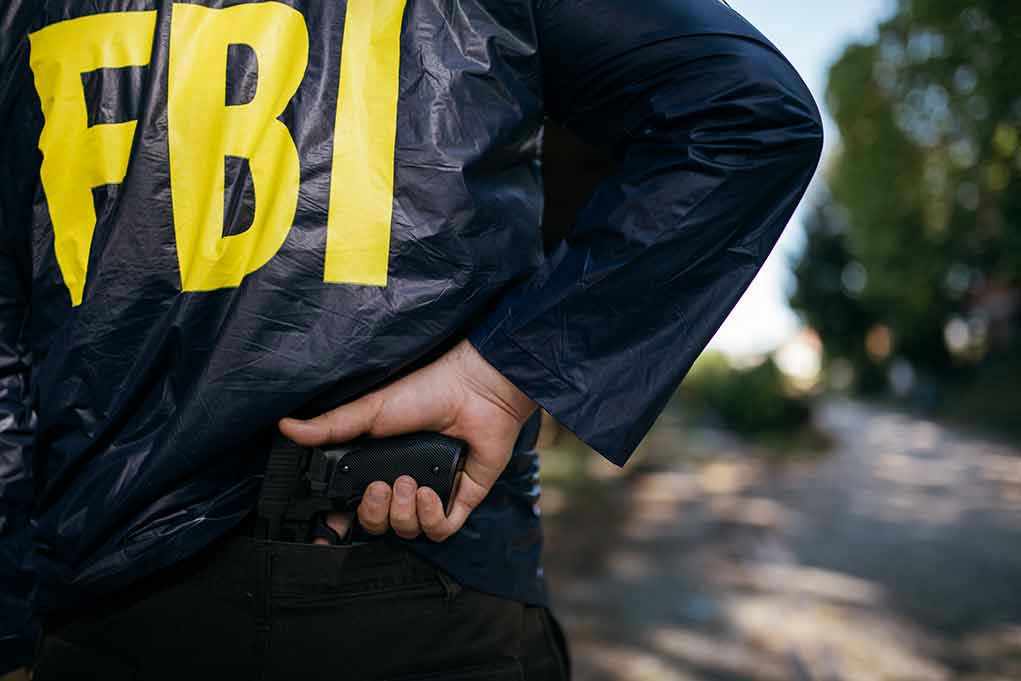
Federal agents arrested 21 illegal immigrants in Wisconsin—including nine suspected human traffickers preying on American children—in the state’s largest-ever immigration raid, reigniting debate over border security and community safety.
Story Snapshot
- FBI and ICE led a massive joint operation in Manitowoc County, arresting 21 undocumented immigrants, with nine suspected of trafficking or sexually assaulting minors.
- This marks the largest immigration raid in Wisconsin history, involving multiple federal agencies and targeting both immigration violations and violent crimes.
- The operation reflects President Trump’s 2025 crackdown on illegal immigration and renewed efforts to protect American families from criminal threats.
- Local communities, especially in agriculture, face disruption and heightened tensions over due process and labor shortages.
Historic Immigration Raid Targets Criminal Networks
On September 25, 2025, a coordinated federal operation swept through Manitowoc County, Wisconsin, resulting in the arrest of 21 undocumented immigrants. Led by the FBI Milwaukee and ICE, with support from the U.S. Marshals, DEA, CBP, and IRS-CI, this joint action stands as the largest immigration raid in Wisconsin’s history. Nine of those arrested face allegations of participating in the sexual assault and trafficking of minor American girls. The arrests occurred at multiple locations, including a Walmart parking lot where many detained individuals were reportedly waiting for carpool rides to dairy farm jobs. Authorities emphasized that the operation was designed to target both immigration violations and violent crimes threatening the safety of local communities.
Federal agents acted in response to the increasing use of immigrant labor in Wisconsin’s agricultural sector and a growing national focus on human trafficking. The operation unfolded early in the morning, with agents making arrests at several sites across Manitowoc County. By the afternoon, the FBI confirmed both the arrests and the nature of the suspected crimes. Community leaders and immigrant advocates immediately began seeking information about those detained, raising concerns about transparency and the treatment of individuals not accused of violent offenses. The raid has become a flashpoint in the ongoing debate over immigration policy and the balance between public safety and due process.
Trump Administration’s Tough Stance and Policy Context
President Trump’s second administration has prioritized aggressive immigration enforcement, fulfilling campaign promises to crack down on illegal entry and restore law and order. Since taking office in January 2025, Trump signed executive orders ending so-called “catch and release,” suspending most refugee admissions, and empowering ICE to conduct raids anywhere—including schools and churches—previously designated as off-limits. The administration also passed the Laken Riley Act, mandating detention of immigrants charged with or convicted of crimes. Trump’s policies led to a dramatic decline in illegal border crossings and a surge in coordinated enforcement actions nationwide, such as the Manitowoc operation. These steps are promoted as necessary measures to protect American families from crime, restore control over the border, and uphold constitutional values that were, in the eyes of many, eroded by prior administrations.
Critics of these policies argue that they risk undermining due process and destabilizing immigrant communities, especially when enforcement actions impact individuals not accused of violent crimes. Legal experts and community advocates have highlighted the challenges of ensuring fair treatment for all detainees, especially in the context of large-scale raids. Nevertheless, supporters maintain that prioritizing public safety and the rule of law is paramount, especially when vulnerable populations—such as minors—are at risk from human traffickers and other predatory actors.
Community Impact and Debate Over Due Process
The ripple effects of the Manitowoc raid are already being felt across the region. Families have been separated, and local employers—particularly in the dairy industry—face potential labor shortages. Community leaders, including religious figures such as Rev. Matthew Sauer, have called for transparency and legal support for those detained, underscoring the tension between public safety priorities and the rights of immigrant families. While some community members support the removal of violent offenders, others express concern that broad enforcement sweeps may harm innocent workers and contribute to a climate of fear.
Federal agencies, for their part, stress that their primary motivation is protecting communities and preventing crime. They point to the necessity of multi-agency cooperation to dismantle criminal networks and safeguard vulnerable populations. However, advocates warn that overbroad enforcement can undermine trust between immigrant communities and law enforcement, potentially making it harder to combat crimes like trafficking in the long run. The situation in Manitowoc County exemplifies the ongoing national debate about the balance between border security, constitutional rights, and the practical needs of American employers and families.
Broader Implications and Looking Forward
The Manitowoc operation may set a precedent for future joint actions targeting both immigration violations and serious criminal activity. In the short term, the immediate removal of suspected criminals is viewed as a victory for public safety by many residents. However, the disruption to the immigrant workforce could lead to economic challenges for local industries and heighten social tensions. Nationally, the raid fuels the debate over the effectiveness and fairness of current immigration policies, and whether enforcement actions strike the right balance between security and justice. As federal investigations continue and legal proceedings unfold, the eyes of the nation remain on Wisconsin, where the consequences of these policies will be closely watched by both supporters and critics of the Trump administration’s approach.
Sources:
ICE arrests 83 criminal aliens and immigration violators in 4-day Wisconsin enforcement surge | ICE
Wisconsin immigration raids: ICE, FBI arrest 21 in Manitowoc | FOX6 News Milwaukee
Manitowoc residents search for answers after ICE arrests 21 people | Milwaukee Journal Sentinel











